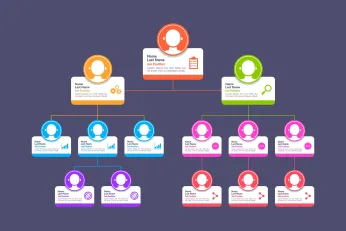20 Essential Sales Associate Skills to Succeed in Retail
Master the 20 essential sales associate skills to excel in retail. From communication to adaptability, these key skills will help you boost sales, build relationships, and advance your career.
On this page
Sales associates are the backbone of retail businesses, serving as the frontline representatives who interact directly with customers. To thrive in this role and drive sales growth, sales associates need a diverse set of skills.
From effective communication and product knowledge to problem-solving and adaptability, these skills are essential in creating exceptional customer experiences and building lasting relationships.
In this blog, we will explore the critical sales associate skills that empower professionals to excel in the dynamic and competitive world of retail. Whether you are a seasoned sales associate or aspiring to join this field, understanding and honing these skills can unlock your potential for success.
What is a sales associate?
A sales associate is a professional who works primarily in a business-to-consumer (B2C) retail setting, assisting customers in finding products that align with their needs. Unlike other sales roles that focus on prospecting and pipeline management, this position emphasizes customer engagement, consultation, and creating a seamless shopping experience.
Beyond selling, sales associates play a crucial role in delivering a positive brand experience. By actively listening to customer needs and providing tailored recommendations, you not only drive sales but also build trust and loyalty.
Gaining expertise in skills for sales associates, such as persuasive communication and adaptability, can help you thrive in this career and open doors to future opportunities in sales and beyond.
What does a sales associate do?
A sales associate plays a vital role in delivering exceptional customer experiences while driving sales. Their key responsibilities include assisting customers, promoting special offers, answering inquiries, organizing product displays, managing inventory, processing transactions, and ensuring a seamless buying journey.
While daily tasks may vary by position, a sales associate’s primary focus is to provide outstanding customer service and meet sales targets. Strong sales associate skills, such as communication, problem-solving, and product knowledge, are essential for success in this role.
What makes a good sales associate is the ability to engage customers, understand their needs, and offer tailored solutions that enhance their shopping experience.
15 Sales associate skills for resume to maximize your impact
Here are 15 sales associate skills for resume to maximize your impact
1. Exceptional communication skills
Effective communication lies at the heart of sales success. Sales associates must possess excellent verbal and written communication skills to convey product knowledge, answer customer queries, and build rapport.
Active listening skills are equally important, enabling sales associates to understand customer needs and tailor their approach accordingly.
By communicating clearly, confidently, and empathetically, sales associates can establish trust, inspire confidence, and create memorable shopping experiences.
2. Product knowledge
A deep understanding of the products or services offered is crucial for sales associates. Customers rely on them for guidance and recommendations, so it's essential to be well-versed in the features, benefits, and usage of the products.
Staying updated with industry trends, attending training sessions, and actively seeking product knowledge, sales associates can provide accurate information, make persuasive pitches, and boost customer confidence in their expertise.
3. Customer-centric mindset
Successful sales associates prioritize the needs and preferences of their customers. They strive to create a personalized experience by assessing individual requirements and offering tailored solutions.
A customer-centric mindset involves being patient, empathetic, and adaptable. By actively listening to customers, understanding their pain points, and finding suitable solutions, sales associates can forge lasting relationships, drive customer loyalty, and increase sales through positive word-of-mouth.
4. Adaptability and resilience
The retail industry is constantly evolving, with new products, technologies, and customer expectations emerging regularly. Sales associates must be adaptable to change and resilient in the face of challenges.
Adaptable sales associates quickly learn new systems, processes, and technologies, enabling them to provide a seamless customer experience.
They remain resilient by maintaining a positive attitude, bouncing back from rejection, and viewing setbacks as opportunities for growth and improvement.
5. Time management and organizational skills
Sales associates often handle multiple tasks simultaneously, such as assisting customers, restocking merchandise, and completing administrative duties. Effective time management and organizational skills are critical to ensure productivity and efficiency.
By prioritizing tasks, setting realistic goals, and maintaining a well-structured approach, sales associates can maximize their productivity, optimize their workflow, and deliver exceptional service without compromising on quality.
6. Sales and persuasion techniques
While a sales associate's primary goal is to drive sales, it's important to approach the process ethically and authentically.
Successful sales associates understand the art of persuasion without being pushy or aggressive. They possess the ability to identify customer needs, offer compelling solutions, and address objections effectively.
Leveraging their persuasive skills, sales associates can guide customers towards informed buying decisions, ultimately increasing sales and customer satisfaction.
7. Relationship building
Building strong and genuine relationships with customers is a key skill for sales associates. By fostering trust and rapport, they can create a loyal customer base and generate repeat business.
Sales associates who excel in relationship building actively engage with customers, follow up on their needs, and provide personalized service even after the sale is made.
8. Problem solving
Sales associates often encounter customer issues or concerns that require quick thinking and problem-solving skills. The ability to analyze situations, think critically, and find suitable solutions is invaluable.
Sales associates who excel in problem-solving identify root causes, offer alternatives, and work collaboratively with customers to resolve any challenges that arise.
9. Teamwork and collaboration
Collaboration is essential in a retail environment where sales associates often work as part of a team.
Sales associates who can effectively collaborate with colleagues, share knowledge, and support one another contribute to a positive work atmosphere. They understand the importance of teamwork in achieving shared goals, such as meeting sales targets or delivering exceptional customer service.
10. Technology proficiency
In the digital age, technology plays a significant role in the retail industry. Sales associates who are proficient in using point-of-sale (pos) systems, customer relationship management (crm) software, and other retail technologies can streamline their work processes and provide a seamless customer experience.
Additionally, familiarity with e-commerce platforms and social media can help sales associates adapt to omnichannel selling and engage customers across various platforms.
11. Continuous learning
Sales associates who possess a growth mindset and a thirst for knowledge are more likely to excel in their roles. They proactively seek opportunities for learning and self-improvement, whether through industry webinars, sales training programs, or self-study.
Staying up to date with industry trends, consumer preferences, and sales techniques, can help bring fresh ideas and innovative approaches to their work.
12. Negotiation skills
Sales associates who possess strong negotiation skills can effectively navigate price discussions and close deals. They understand the value of the products or services they offer and can articulate the benefits to customers while addressing any objections.
Finding common ground and reaching mutually beneficial agreements, can help sales associates to boost sales revenue and strengthen customer relationships.
13. Problem anticipation
Exceptional sales associates have the ability to anticipate potential issues or objections before they arise. By proactively addressing concerns, offering preemptive solutions, and providing detailed information, they can mitigate potential barriers to sales.
Sales associates who excel in problem anticipation demonstrate foresight and customer-centricity, ensuring a smoother sales process and enhanced customer satisfaction.
14. Resilience to rejection
Rejection is an inevitable part of sales. Sales associates who possess resilience can bounce back from rejection, maintain a positive attitude, and persist in their efforts.
They understand that not every customer will make a purchase, but they view each interaction as an opportunity to learn and improve.
Resilient sales associates maintain their motivation, adapt their approach, and remain focused on achieving their sales targets.
15. Multilingual skills
In today's diverse and multicultural society, sales associates who are proficient in multiple languages have a distinct advantage. Being able to communicate with customers in their native language not only enhances understanding but also demonstrates respect and inclusivity.
Multilingual sales associates can cater to a broader customer base, build stronger connections, and potentially tap into new market segments.
16. Product presentation and visual merchandising
The way products are presented can significantly impact sales. Sales associates who have skills in product presentation and visual merchandising can create attractive and engaging displays that capture customers' attention.
They understand the principles of visual merchandising, such as product placement, signage, and lighting, and use them to create an appealing shopping environment.
By showcasing products effectively, sales associates can increase customer interest, drive impulse purchases, and boost overall sales.
17. Creative problem-solving and decision-making in customer interactions
Sales associates must think quickly and strategically when handling customer issues. A solution-driven approach and creativity are essential skills for sales associates.
Helping customers effectively navigate challenges strengthens their trust and ensures they have a positive perception of your brand.
18. Empathic attitude
A key factor in what makes a good sales associate is the ability to empathize with customers. Understanding their needs allows associates to build stronger relationships and offer tailored solutions.
19. Ability to adapt and prioritize in dynamic situations
Sales associates manage multiple tasks under tight deadlines. The ability to adapt and reprioritize in real time is crucial for success.
Demonstrating adaptability includes staying calm in unexpected situations, being open to alternative solutions, and taking on new responsibilities when necessary. For example, if a prospect asks a question, you’re unsure about, respond professionally: “That’s a great question. I’ll gather the details and follow up with you by the end of the day.”
Developing strong sales associate skills—including problem-solving, empathy, and adaptability—ensures a seamless customer experience and drives success in the role.
20. Experience with CRM, POS, and sales gamification software
Proficiency in customer relationship management (CRM) software is a valuable skill for sales professionals. A well-versed sales associate can efficiently manage customer interactions, track leads, and automate tasks, streamlining the sales process. CRM tools provide a structured way to organize contacts and deals, making it easier to engage with customers at the right time. If you’re unfamiliar with CRM systems, exploring a comprehensive guide can help you build this essential skill.
For those working in a retail environment, a CRM may not always be a necessity. Instead, point-of-sale (POS) systems play a crucial role in managing customer transactions and purchase records. Mastering POS software ensures seamless operations, from processing payments to maintaining customer data. Developing expertise in both CRM and POS systems enhances overall sales associate skills, helping professionals excel in various sales roles.
Additionally, sales gamification software is becoming increasingly popular for motivating teams and boosting performance. These platforms leverage competition and rewards to drive sales efficiency and engagement.
Sales can be repetitive and challenging, but gamification makes it engaging. Sales gamification software enhances sales associate skills by driving motivation and performance.
Maximize earnings with KPI-based contests: Reps excel when their efforts impact their income. Contests tied to key KPIs boost engagement and commissions.
Increase accountability with quota visibility: Dashboards and leaderboards provide transparency, encouraging reps to meet and exceed quotas.
Track and improve performance: Gain insights with real-time tracking, AI nudges, and performance trends to optimize sales strategies.
Key features:
- Personalized dashboards
- Scorecards & goal tracking
- AI-powered nudges
- Real-time leaderboards
- Points & badges
- Payout history
- Engagement metrics
Empower your team with Compass’s gamification to develop skills for sales associates and drive higher sales. Schedule a call now!
Conclusion
Becoming a successful sales associate requires a unique blend of skills, qualities, and attitudes. From exceptional communication and product knowledge to adaptability and persuasion techniques, mastering these skills can unlock tremendous success.
By consistently honing their abilities, sales associates can build strong customer relationships, drive sales growth, and become indispensable assets to their organizations.
FAQs
1. What are the skills for a sales associate?
A sales associate needs strong communication, customer service, active listening, product knowledge, and persuasion skills. They should also be proficient in problem-solving, teamwork, and adaptability.
2. What are the key skills of a sales assistant?
Key skills for a sales assistant include interpersonal skills, attention to detail, time management, organization, and the ability to handle transactions efficiently. A good sales assistant should also have a customer-focused mindset.
3. What are the skills required for a salesperson?
A salesperson must have excellent negotiation, relationship-building, resilience, and sales strategy skills. Other essential skills include adaptability, confidence, and an understanding of consumer behavior.













